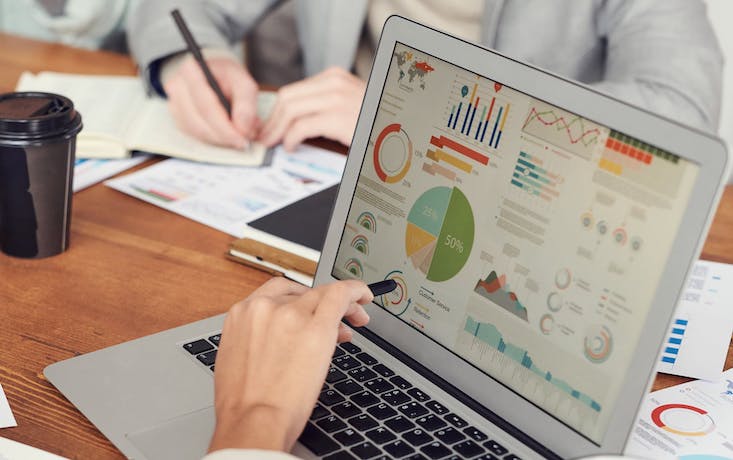Open Data Portals Provide Vital Information to Public During Crises

As the coronavirus crisis rolls on, data is playing an increasingly vital role in helping officials plan resources for the epidemic, identify those who are at risk, and educate the public about ways to stay safe and find businesses they can continue to patronize. The efforts are designed to save lives and minimize deterioration of local economies.
“Explosion” of Open Data Analysis Helps Track and Predict Covid-19 Outbreaks, Experts Say
An “explosion” of open data analysis by researchers in academia, government, health care systems, non-profits, and think tanks is providing critical insights into where Covid-19 outbreaks will likely flare and which populations might be most at-risk.
Local governments also are developing online open data dashboards to provide the public with critical local information about the outbreak such as where to get tested, the number of cases in specific communities, local restrictions, and even which retail and restaurant establishments are open or delivering.
“We are seeing a huge explosion in interest in open data,” says Joel Gurin, President and Founder of the Center for Open Data Enterprise, or CODE. “I don’t think I’ve ever seen so many people working so hard to see how open data and data analytics can help rapidly with a critical national problem…It’s really pretty phenomenal.”
Gurin says data experts are working to track and predict outbreaks of the disease, impacts of mitigation efforts, and vulnerable populations. Data experts are working to fill gaps in data from the Centers for Disease Control and Prevention (CDC) and other governmental agencies and are leveraging other data sets to develop predictive models. Tracking data related to the social determinants of health, or SDOH, is one area of analysis that has taken center stage during the crisis, since the information is key to identifying areas where the most vulnerable citizens live. Identifying those areas – and combining it with anonymized clinical data when possible – can help officials prepare for outbreaks and plan for mobilization of resources. Physically vulnerable people are much more likely to require hospitalization from the virus and even intensive care.
“We are seeing where the gaps are and are trying to not only get better data, but to get better analytics,” Gurin says.
Innovative Collaborations Forming
There are six categories of social determinants of health: economic stability, neighborhood and physical environment, education, food, community and social context, and the local health care system. Some of this information is available through the Census Bureau and other governmental sources. Some health plans also try to get at the data through questionnaires.
Innovative data analytics collaborations are forming throughout the country to tease out SDOH in some areas as well as impacts of local mitigation efforts. The Mitre Corporation brought together various stakeholders and recently launched the COVID-19 Healthcare Coalition – a coalition of tech firms, healthcare organizations, non-profit organizations, and academics – that is collaborating to identify vulnerable populations, health care resource risk, and the impact of nonpharmaceutical interventions such as mandatory masks, stay-at-home orders, and more. To examine risk due to SDOH, the coalition uses data from governmental agencies such as the CDC, the U.S. Department of Housing and Urban Development, the U.S. Census Bureau. Its online dashboard provides data visualization tools that allow review of Covid-19 cases and deaths down to the county level. Users can also conduct regional comparisons and view an interactive model that allows them to see the impacts of changing NPI on infection rates.
Similar collaborations are developing throughout the nation, particularly around SDOH. The State of Maryland is working with another data analytics firm — Socially Determined – to use SDOH data to plan for COVID-19 care. Other collaborative efforts are proliferating.
“A lot of the challenge is how do we make the data granular enough to be useful for analysis, without sacrificing privacy,” says Gurin, adding that anonymization is one tool that helps privacy.
Local Governments Provide Vital Open Data for Citizens
Local governments also are utilizing open data and user-friendly data dashboards and visualization tools to help local residents maneuver through the crisis. Opendatasoft (ODS) has helped with this effort, providing expertise to cities and other local governments.
The City of Somerville, Massachusetts recently launched a Covid-19 dashboard, powered by ODS, that provides vital information to residents on the virus and related resources on the city’s dedicated webpage.. The page offers information on prevention, symptoms, testing, which city services are open or closed, and which local businesses are open or closed.
ODS also has partnered with Cambridge Local First (CLF), a non-profit network of more than 400 local and independent businesses in Cambridge, Massachusetts that seeks to support the local economy in the time of coronavirus. The partnership has resulted in the development of an online tool that allows residents to connect with local businesses. Residents can find information on which retail locations are still open and which local businesses provide delivery, take out, online shopping options, and fundraising opportunities.
“Residents may assume that most local shops, restaurants or cafes have entirely closed down. In reality, our platform shows that about two-thirds (67%) of all businesses offer online sales service, and that almost all restaurants (96%) offer a take-out option. By sharing this information, we hope to encourage residents to support their local businesses and help minimize the impact of the crisis on our local economy,” Theodora Skeadas, CLF’s Executive Director, shared in a written statement.
The City of Newark, New Jersey also is partnering with ODS to make Covid-19 data publicly available to its residents. Its dashboard allows users to obtain up-to-date numbers on Covid-19 deaths and infections as well as data break-downs of cases by age, gender, and race.
All of these new data initiatives – by local governments, health officials, academia, non-profits, data experts, and others – are intended to empower citizens and officials to minimize risk and plan effectively during the pandemic. Without good data, people would be flying blind as the crisis rolls on.
 Data intelligence & reporting
Data intelligence & reporting
Has data sharing become a key resource in economic decision-making since the start of the Covid-19 pandemic? To answer this question and understand recent developments in data sharing and its role in driving innovation, we sat down to talk with both Damien Pelletier, CEO of Ecomesure and Jean-Marc Lazard, our CEO.


